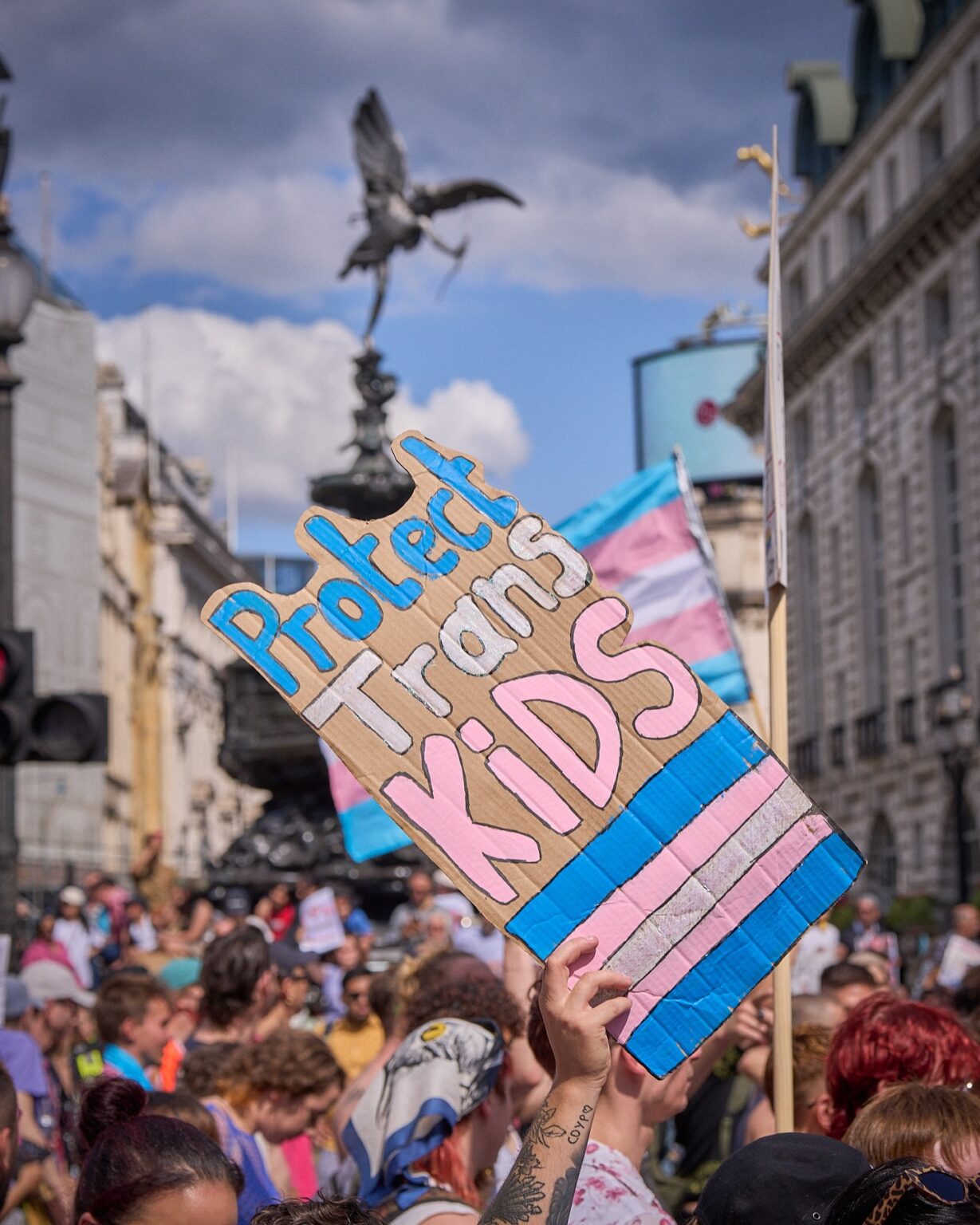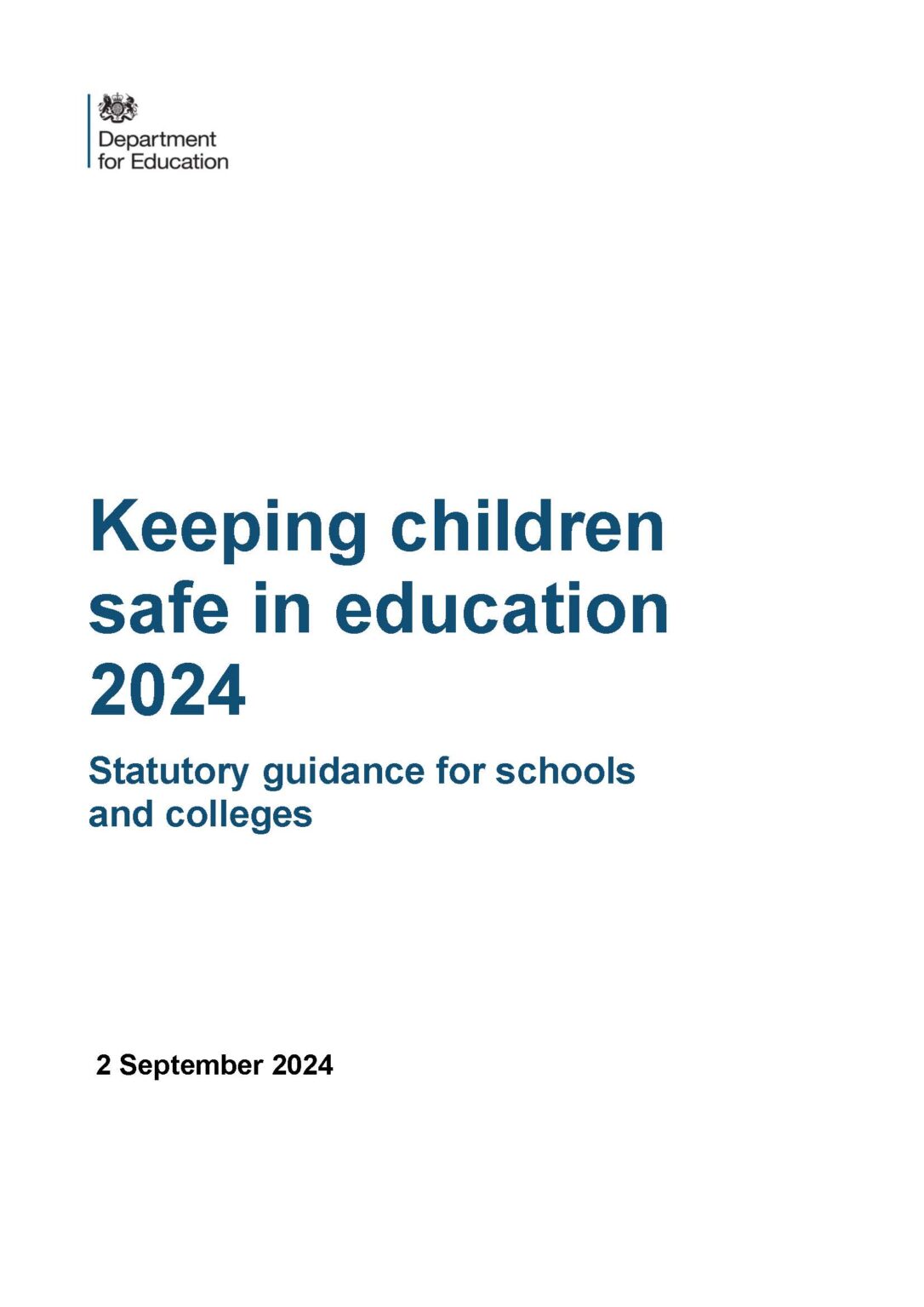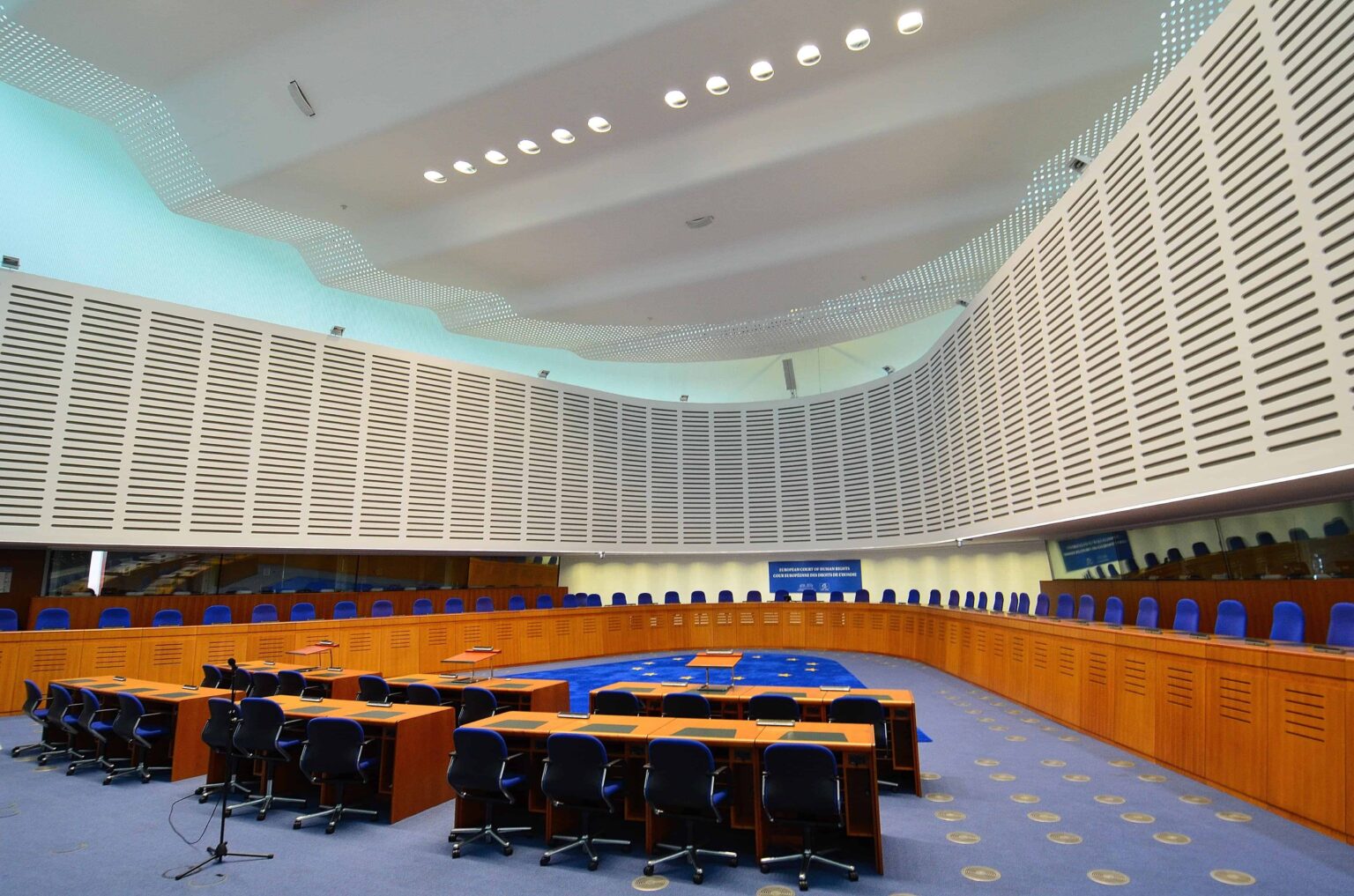Joint statement on the decision to ban puberty blockers for trans youth in the UK

The recent decision to indefinitely ban the private prescription of puberty blockers for trans youth in the UK marks a profoundly troubling development in the ongoing struggle for the rights of trans people and access to necessary, life-saving and evidence-based healthcare.
In the UK, where no form of trans-specific healthcare is currently available for minors through the NHS and waiting lists have reached six years, the government’s decision to ban the private prescription of puberty blockers for trans youth constitutes a de facto ban on puberty blockers. This decision, which overrides years of established medical guidance and expertise, is deeply political, rooted in a divisive public discourse and misinformation rather than the recommendations of leading medical authorities. It threatens the well-being of vulnerable trans youth, whose lives depend on timely, supportive, and individualised healthcare.
ILGA-Europe, IPPF European Network, TGEU, IGLYO, and The Kite Trust call on the UK government to reconsider this harmful decision and to engage meaningfully with both the medical and scientific community and civil society groups representing the interests of trans youth and trans adults.
The framing and justification for this ban have leaned heavily on a polarised and often misleading public narrative about trans identities and related trans healthcare and epistemologically, and methodologically questionable studies about trans identities and trans-specific healthcare. Despite claims of prioritising child safety, this decision disregards the consensus of medical professionals and organisations such as the World Professional Association for Transgender Health (WPATH) and the Endocrine Society’s Clinical Practice Guideline, which have long endorsed puberty blockers as a safe and reversible option for managing gender dysphoria in minors. These treatments allow young people experiencing distress with their assigned gender to pause puberty, giving them time to better understand their needs and identity, without the added pressure of physical changes brought on by puberty.[1]
The political instrumentalisation of healthcare for trans minors has become a rallying point for anti-trans rhetoric, which often conflates all trans-specific healthcare with irreversible medical interventions. This characterisation is not only inaccurate but also deeply harmful. Puberty blockers do not lead to permanent medical transition[2] – they are a widely used and reversible treatment prescribed for various conditions, including precocious puberty.[3] By banning them for trans youth specifically, the UK government is singling out a vulnerable group for discriminatory and harmful treatment based on ideology rather than evidence.
Misinformation about the nature and effects of puberty blockers has played a significant role in shaping public opinion and policy. Opponents of trans-specific healthcare frequently cite exaggerated or unfounded claims about the risks of these treatments, ignoring the robust body of research demonstrating their safety and efficacy. Long-term studies show that puberty blockers and other trans-specific healthcare significantly reduce rates of depression and suicidality among trans youth[4] —outcomes that align with broader understandings of the critical importance of affirming care for marginalised populations.
Expert voices, including paediatric endocrinologists, psychologists, and trans health specialists, have been sidelined in favour of rhetoric that frames trans-specific healthcare as controversial. This erasure of medical expertise undermines the principles of patient-centred care and puts the health of trans youth at risk. The decision to ban puberty blockers ignores the individualised, case-by-case assessments that qualified professionals conduct before prescribing such treatments,[5] opting instead for an unyielding prohibition that strips both doctors and families of agency.
The consequences of this ban will be devastating. For many trans youth, the ability to access puberty blockers represents a lifeline. Denying them this care will force young people to undergo the changes of puberty associated with their assigned gender, exacerbating gender dysphoria and increasing risks of mental health struggles, including anxiety, depression, and suicidal tendencies. By removing a critical tool for early intervention, this decision condemns trans youth to unnecessary suffering and places an already marginalised group at greater risk of harm. Furthermore, this policy undermines the trust between trans individuals and the healthcare system. Families seeking support for their children will face increased barriers, uncertainty, and stigma, while healthcare providers may find themselves unable to offer the care they know to be best for their patients. These ripple effects extend beyond trans youth, chilling the broader provision of trans-specific healthcare and reinforcing a climate of fear and hostility.
Trans children and young people deserve safety, understanding, and access to the same standard of care afforded to their peers. Decisions about their healthcare should be guided by medical evidence and the expertise of trained professionals, not by political agendas. The indefinite ban on puberty blockers represents a failure to prioritise the rights and well-being of trans youth, and it sets a dangerous precedent for further erosion of the rights of LGBTI persons in the UK.
We urge policymakers to reconsider this harmful decision and to engage meaningfully with both the medical and scientific community and civil society groups representing the interests of trans youth and trans adults. Upholding the dignity and humanity of trans youth requires a commitment to evidence-based healthcare, free from the distortions of ideology and misinformation. Only by centering the voices and needs of trans youth can we hope to build a society that values and protects all its members.
Signatories
- ILGA-Europe
- IPPF European Network
- TGEU
- IGLYO
- The Kite Trust
[1] Cal Horton, Experiences of puberty and puberty blockers: Insights from trans children, trans adolescents, and their parents, Vol. 39(1), Journal of Adolescent Research, available at: https://journals.sagepub.com/doi/full/10.1177/07435584221100591v.
[2] Hannema et al, Endocrine management of transgender and gender diverse adolescents: expert opinion of the ESPE Working Group on Gender Incongruence and the Endo-ERN main thematic group on Sexual Development and Maturation, available at: https://pubmed.ncbi.nlm.nih.gov/39622214/.
[3] Giordano & Holm, Is puberty
delaying treatment ‘experimental treatment’?, Vol 21(2) International Journal of Transgender Health (2020).
[4] Van der Miesen et al, Psychological Functioning in Transgender Adolescents Before and After Gender-Affirmative Care Compared with Cisgender General Population Peers, Vol 66(6) Journal of Adolescent Health (2020); Olson et al, Mental Health of Transgender Children Who Are Supported in Their Identities, Vol 137(3) Pediatrics (2016); Nath, R., Matthews, D.D., DeChants, J.P., Hobaica, S., Clark, C.M., Taylor, A.B., Muñoz, G. (2024). 2024 U.S. National Survey on the Mental Health of LGBTQ+ Young People. West Hollywood, California: The Trevor Project. www.thetrevorproject.org/survey-2024.
[5] Cass, Hilary (2024), Independent review of gender identity services for children and young people: Final report, pp. 168-169, available at: https://cass.independent-review.uk/home/publications/final-report/
Joint statement: Trans children and young people in schools deserve safety and understanding

This statement was drafted by IGLYO with input from UK inclusive education experts and Members, and was endorsed by ILGA-Europe and Transgender Europe (TGEU).
We condemn the UK Statutory Guidance for Schools & Colleges and their failure to include trans and non-binary students in an affirming, supportive way.
Returning to school in September should be an exciting time for young people, catching up with friends, and new adventures ahead. Yet, trans children and young people in England continue to be targeted by exclusionary policies in education. On 2 September, the UK government published its updated legally-binding guidance for schools and colleges in England, with a section on LGBT persons that remains under review, titled “Keeping Children Safe in Education 2024”.
While we recognise the importance of providing clear guidance to schools and colleges in relation to safeguarding young people, we are concerned about the harmful and untrue narratives underlying this guidance in relation to young people’s identity. If kept in its current state, this guidance could provide a pathway to strip young trans people of their rights and agency, while perpetuating harmful stereotypes.
We are particularly concerned by the following:
- The updated guidance refers to children and young people being LGB in affirming ways but has removed parallel references for trans children and young people. We strongly condemn the government’s decision to remove trans identities from this list and its previous guidance and stress the need to reintroduce language that protects young trans people. To keep trans children safe in education, we call upon the UK government to recognise the harms of transphobia and bullying ever present in UK schools and colleges and to provide a clear framework in relation to safeguarding trans children’s well-being and identity.
- We also note with concern that the UK government continuously refuses to recognise trans identities in young people as real, conflating such terminology with ‘gender questioning’ throughout its guidance. This rejects the idea that young people can be trans. We recall that this linguistic shift was observed in other recent government guidance, including the draft schools and colleges guidance “Gender questioning children” and the “Draft Relationships Education, Relationships and Sex Education (RSE) and Health Education” statutory guidance.
- The UK government cross-references guidance that is in draft form and in consultation to reinforce its harmful messaging. There has been no response by the government to the consultation, including to concerns expressed through inputs by educators, policy experts, human rights groups, and young people themselves during the consultation.
- The “Keeping Children Safe in Education 2024” guidance uses the Cass Review as an evidentiary basis for this policy change, despite its poor and inconsistent use of evidence, pathologising approaches, and exclusion of service users and trans healthcare experts. As stated by healthcare activist and feminist researcher Dr Ruth Pearce in an article titled “What’s wrong with the Cass Review? A round-up of commentary and evidence” (2024), the Cass Review “has been extensively criticised by trans community organisations, medical practitioners, plus scholars working in fields including transgender medicine, epidemiology, neuroscience, psychology, women’s studies, feminist theory, and gender studies”.
- The “Keeping Children Safe in Education 2024” guidance recommends that families are involved in social transition in schools, despite the potential safeguarding risks of outing students to their caregivers. Research by Galop (2022), UK’s LGBT+ anti-abuse charity, noted that 2 in 5 trans or non-binary people had experienced abuse at the hands of family members, with the majority experiencing this before they turned 18 and often in relation to their gender identity. We reiterate that all young people, including trans young people, have the right to privacy, which must be respected. Trans children and young people should be supported in choosing for themselves when and how to share information about themselves with their parents or guardians. We are also concerned that the government refers to ‘exceptionally rare’ situations in which there could be a safeguarding reason to not inform parents but provides no evidence for this being exceptionally rare and no guidance for how schools decide when this risk threshold is met.
- We also stress that the guidance as it stands now recommends that schools encourage parents to seek “clinical help and guidance”, which is not only dehumanising and pathologising, it is also virtually impossible due to the UK government’s restrictions on gender-affirming care to young trans people. Parents and guardians should listen to trans children and young people and respect their identity and wishes. Not rush them off to a doctor’s office.
- We further condemn the guidance’s conflation of being trans with mental illness and autism. While some trans young people may experience mental health difficulties both as a result of transphobia and unrelated reasons, neither mental illness nor autism is intrinsic to their gender identity. We urge the government to stop scapegoating trans young people and creating further divides across communities. This is extremely dangerous and harmful to not only trans youth, but also neurodivergent and autistic youth, including those that are both trans and autistic.
On the guidance, Alex Feis-Bryce (He/him), Executive Director of our UK Member Diversity Role Models noted: “I am very concerned about the lack of clarity this update provides teachers and school leaders on their return to school and the impact it could have on trans young people. The proposed changes, that remain under review, could strip young trans people of their agency. To keep children safe in education and ensure that their right to privacy is protected, any education policy should recognise the challenges young trans people currently face in education, including bullying on the basis of their real or perceived difference, not introduce additional barriers.”
The “Keeping Children Safe in Education 2024” guidance is just another step in the deeply worrying march toward the attack against trans people in the UK. We urge our members across the Council of Europe region to take note and prepare for similar attacks in their home nations.
IGLYO, the world’s largest network for LGBTQI young people and students, and signatories of this statement ILGA-Europe and Transgender Europe (TGEU) call on the UK government and policymakers to stop fueling this moral panic against trans young people and discard dangerous changes proposed to the aforementioned pieces of guidance. Trans children are at increasing risk of isolation, alienation and violence. It’s time to get on the right side of history and protect trans children, and their human rights.
S.A.C. v UK

Arbitrary refoulement
(Application no. 31428/18), 28 February 2019
Find here the communicated case.
Communicated case:
- The applicant in this case complained that he that he would facea real risk of serious and irreversible harm under Article 3 of the Convention if he were to return to Bangladesh as a gay/bisexual man.
- ILGA-Europe together with the ICJ (International Commission of Jurists) and the UK Lesbian and Gay Immigration Group (UKLGIG) submitted the following:
- There is a consistent approach in the case-law relating to Bangladesh as a country where imputation, suspicion, discovery or identification of someone’s sexual orientation or identity as LGBT is likely to give rise to a real risk of serious harm.
- According to the ECtHR, treatment which is grounded upon a predisposed bias on the part of a heterosexual majority against a homosexual minority may, in principle, fall within the scope of Article 3. Under refugee law, prosecution may amount to persecution if the criminal law is enforced or punishment meted out in a disproportionate or discriminatory manner.
- Concealment constitutes evidence of the objective well-foundedness of a subjective fear of persecution. Requiring coerced concealment of someone’s same-sex sexual orientation – as a way, purportedly, to mitigate the real risk of their being exposed to Article 3 prohibited treatment – constitutes pain and suffering amounting to proscribed treatment under Article 3 even if temporary. Mental harm resulting from fear of exposure to physical harm has been found by the ECtHR to constitute cruel, inhuman and degrading treatment. According to refugee law, in some cases psychological harm is persecutory.
- Enforcing removals on the basis that the individuals concerned would be expected to conceal their sexual orientation would constitute arbitrary refoulement and thus violate Article 3 ECHR.
Ladele and McFarlane v. UK

Refusal to provide services
(Application nos 51671/10 and 36516/10), September 2011
- In both cases the issue is the denial of services to members of the public because of their sexual orientation by a religiously-motivated individual. Ms Ladele, a marriage registrar, and Mr McFarlane, a relationship counsellor, refused to respectively carry out civil partnerships and counselling for same-sex couples, due to their Christian beliefs. Disciplinary sanctions were taken against them by their employers.
- Professor Robert Wintemute on behalf of ILGA-Europe, the International Commission of Jurists, and FIDH submitted the following:
- Individuals providing good or services are not entitled to accommodation of their religious beliefs where they require that they exclude segments of society on the basis of personal identity characteristics such as sexual orientation. The right to manifest one’s religion is not absolute and may be circumscribed in the name of compelling objectives. Protecting the right of others to be free from discrimination is a legitimate limitation on the right to manifest one’s religion in the public sphere. It is necessary in a democratic society because the elimination of discrimination based on sexual orientation corresponds to a pressing social need.
- This analysis is borne out by national law and practice which commonly deny such exemption to ensure the equal provision of goods and services to people regardless of sexual orientation.
- The European Court of Human Rights delivered its judgement in 15 January 2013.
- Following the same approach as interveners above, the Court held that there was no violation by the State of the applicants’ right to freedom of religion (Article 9 of the Convention). Its reasoning focused on the importance of balancing the right to freedom of religion with the public interest in providing non-discriminatory services and ‘ensuring that members of the public, regardless of their sexual orientation, are treated with dignity and have equal access to services.’
M.W. v. United Kingdom

Social security rights
(Application No. 11313/02), 5 November 2008
Find Court’s judgement here. (Complaint rejected as manifestly ill-founded)
- The applicant complained that, as a survivor of a same-sex couple who had had no means to achieve formal recognition of their relationship, he had been denied a benefit available to a survivor of a married couple.
- ILGA-Europe, together with FIDH, ICJ and AIRE Centre, submitted the following:
- If the European Convention does not yet require equal access to legal marriage for same-sex couples, it is indirect discrimination based on sexual orientation to limit a particular right or benefit to married different-sex couples, but provide no means for same-sex couples to qualify. There is a growing consensus in European and other democratic societies that same-sex couples must be provided with some means of qualifying for rights or benefits attached to marriage.
- The right to equal treatment requires that the State find alternative means to allow the survivor of a same-sex couple to receive Bereavement Payment. The adoption of the Civil Partnership Act should be seen as confirming that the previous situation, in which same-sex couples had no means of achieving official recognition of their relationship, was discriminatory.